Listen & subscribe on Apple Podcasts, Spotify and more.
Season 6 / Episode 11 / 35:13
Where heritage meets hospitality: Reimagining CRE with Craig Deitelzweig | President & CEO | Marx Realty
Transcript
DA: Welcome to TEN, the Tenant Experience Network. I’m your host, David Abrams and in each episode, we bring you conversations with leading CRE industry professionals and experts who all have something to say about tenant experience and the future of the workplace. In today’s episode, Greg Dietelsweig, President and CEO of Marks Realty, joins me to share his journey from lawyer to CEO and how his passion for repositioning assets has shaped his approach to integrating hospitality into commercial real estate. Greg reflects on the importance of tenacity, thinking differently and keeping promises, and why creating inspiring and authentic workspaces is key to tenant engagement and satisfaction. We discuss how unique design elements, personalized service, and a welcoming atmosphere can drive retention and expansion. The role of technology in delivering seamless and secure digital experiences for tenants and the importance of offering hospitality across all building classes, not just Class A. Greg also shares insights into modernizing older buildings, adding distinctive amenities, and preserving heritage while meeting evolving tenant needs. Listen in for valuable lessons and ideas to elevate your tenant experience strategy.
And now I’d like to welcome Craig to the show. I am really glad you could be with us today. I am so looking forward to our conversation. How are you?
CD: I’m great. Thanks for having me.
DA: Awesome. My pleasure. So let’s start with your journey to your current position role. Love to know how you got started in the business and what you’re doing today.
Read more
CD: So I started off actually as a lawyer, a real estate lawyer, and then went over to a developer and then a private equity firm, then developer and then ultimately I came here to Marks. During that time, I’ve repositioned probably over 50 assets. So I’ve learned that I have a real aptitude for really rethinking about what an asset should be and I’ve been at this role now for eight years.
DA: You’re not the first lawyer on the program to turn commercial real estate professional. I think that seems to be a fairly frequently traveled path to commercial real estate. A little bit about the journey along the way. So I think you said you stopped at different places. What skills did you acquire along the way? And when you landed at Marks, what positioned you for that moment in time?
CD: So when I came to Marks, they were looking for somebody to really reinvigorate a lot of our assets. We had great assets, but they were a bit tired and my background of reimagining assets was really helpful and also I worked in all different asset classes and as a result, what’s happened over the years is there’s been this real convergence of all these different asset classes into office. So we have borrowed heavily from the hospitality side, from the residential side, even the retail side and so I think that background was really helpful here and then in my past life, I think it was helpful really to learn what was good and also what wasn’t good. What doesn’t work in a CEO role as well as just on a property role. So I’ve worn a lot of different hats, and I think that’s been really helpful.
DA: Right. So here you are today, president, CEO of the organization. You’ve traveled this path. Just curious, why do you think you were so uniquely suited, again, for that moment in time? And what has helped you to be successful, either skills, mentors, colleagues, books? You don’t just land one day and say, I’m ready to be a CEO. I’d love to share with our listeners sort of what do you think has made you successful?
CD: Well, I think what’s made me successful is actually tenacity. Just really, you know, really never giving up and sort of also sort of thinking, I don’t want to say contrarian like, but thinking a little differently. You know, allowing myself to sort of, you know, not necessarily follow what everybody else is doing. I think that’s been really helpful, and that’s what our company needed. So we were among the first to really bring hospitality into office and when we first started doing that, you know, other people were really kind of, you know, not getting it and really, you know, I think it was the tenacity to know that this was the right thing to do before really the market knew it was, was really what helped me here and then also just, you know, I had COO roles and executive managing director roles, you know, and junior roles, too and I think having all of those different spots has really helped in understanding what makes a company work well and what I wanted a company to be. You know, I think it’s always important to, for instance, you know, do what you say and you’ll do. There’s so many times in my career where I was told, you know, we’ll take care of you or you’ll get this sort of, you know, promote package or whatever the case may be and then when it really came down to it, unfortunately, it wasn’t quite as advertised and so I definitely didn’t want to be that person, you know. So I think that’s sort of been a real part of my success as well in finding and attracting and retaining great talent is, you know, making sure that they know when I say something, I’m going to do it and not just internally, but even, you know, for our partners, it’s just the most important thing and I think I’ve learned that, you know, throughout my career, too. Sometimes from, you know, what not to do is almost as important as what to do.
DA: Agreed, agreed and I love the understanding and role or the understanding that you’ve had and bringing hospitality into commercial estate, into office and it sounds like well before a lot of your peers did and even still to this day, and we’ll talk more about this, you know, it’s still not everywhere. So you’re still ahead of the curve. Right. So, you know, today I’m super interested in discussing, you know, and interested in this whole notion of how commercial estate is continuing to evolve and better meet the needs of our end users and how we’re looking at technology and obviously, you know, both of these converge in terms of how customer experience is really helping to define and support making what we call places destinations of choice, a place where people want to be. They don’t have to be there. They can. We’ve learned we can work from anywhere and, you know, how do we continue to bring people back to the physical workplace? So, you know, my thinking is the real winners in this transformation are going to be those that seamlessly merge this whole notion of experience with sort of workplace design, functionality, technology. So just wondering, you know, what are your thoughts currently on the state of the industry, particularly office and how you have you been continuing to adapt to this, you know, fast paced transformation that we’re experiencing?
CD: So we’ve been bringing hospitality into office well before COVID and it worked before COVID. But then when COVID happened and in the post COVID world, it became even more important to really accelerate it and so what we find is that today’s tenants really want an experience in the office and for the reasons you’ve said, you know, they can work from anywhere. So, you know, employers really want their employees to love coming to work and for it to be a more, you know, what’s the word I’m thinking of, like more inspiring space, you know, and make them do help them do their best work in these spaces. So what makes us really happy is when we see our tenants, you know, these employees coming in early and they’re having a coffee outside on our terrace or they’re staying late and they’re having a pizza party or bringing wine on, you know, to our lounge floor and they’re using all of our spaces for events and hosting outsiders or even having internal meetings and, you know, you could see they’re just really thriving and as you know, what we also are seeing at the building I’m in now, which is 10 Grand Central, we’ve actually had 14 tenants either expand or are in the process of expanding this year.
DA: Amazing.
CD: Amazing and I think the reason for that is they’re all coming in, you know, four to five days a week, where previously they were thinking they would come in two to three days per week and, you know, they’re using the space more because they want to be here and it really space should have a building should have everything. You know, so the way we look at it is, you know, we have a doorman outside who smiles, greets them, opens the door for these employees and their guests and then there’s music, there’s a signature scent, there’s infused water, there’s coffee, there’s complimentary gelato, there’s outdoor spaces, there’s lounge spaces. All of our spaces also don’t look like other buildings. So when we first started this, that was actually our our prime goal was we didn’t want our buildings to look cold and almost governmental. So, you know, the security guards and other buildings are kind of mean. This actually was one of the catalysts for this. I was working in a building and the doorman, the security guard knew me. I forgot my wallet, so I didn’t have a card to get into the turnstiles and I’m like, oh, you know me. He’s like, sorry, you have to go to the desk. I’m like, fine. So I told them who I am and then they said, well, you know, call your assistant and then I called my assistant. Not good enough. My assistant had to come down to actually take me. I was just like, this is crazy, you know and, you know, even though security is really important, but it really has to be done in a way that makes you feel welcome and makes you feel as you’re a part of this wonderful community. But it’s probably one of the hardest things that we have is to make sure that all of the people that work in our buildings, you know, really understand what it means for people to feel good in the space and that could be that simple smile when you come in and, you know, probably the number one compliment we get is how much the tenants love, you know, the concierge, for instance, or some property manager and that’s so important and that’s why, you know, and it’s smart business, too, because these tenants that are happy, as I’ve said, they’ll expand. They’ll renew. They’ll tell a friend, you know and then, you know, we’ve actually gotten a lot of our tenants not from the brokers, but just from tenants actually hearing about us. At one of our buildings, actually, a now tenant, she walked by the building and thought it was a new hotel. So she asked the concierge, like, what hotel is this? And he said, it’s an office building and then she asked the concierge if she could tour it and he actually arranged for her to tour the building and, you know, she loved it and, you know, they’re a tenant and they’re actually a growing tenant right now. So those types of things.
DA: You know, you said two things. First of all, you talked about wanting your spaces to not look like everybody else’s and I think we’ve all read in the news recently Starbucks is closing, you know, hundreds and hundreds of locations. You’re going through another reinvention and I think personally a big part of their problem is that they sort of institutionalized their look and feel. It became very much a rinse and repeat. There was no warmth. There was no individuality. There was no feeling that, you know, evoked when you walked into one of their locations. Yes, they were all professional and clean. But I think they went too far to that extreme to the point where it didn’t differentiate and it didn’t feel genuine. So I think what you said really struck a chord with me. The other thing you said is, you know, even your concierge, a smile, you know, that friendly, that welcoming sense of welcome and when you think about the hotel industry, to which I know you’re pulling a page from their playbook, often it is just that first touch experience that you have at a hotel that creates the most lasting experience. It might not even be the quality of the bed. It might be how you were greeted and how you, you know, the whole reception process.
CD: It’s how you feel. Right and I think when people come into our building, I want them to feel a certain way and you’re absolutely right about it being, it can’t be cut and repeat. It has to be a truly authentic experience and we kind of talk about our buildings having a soul and everything we do for our building, every building, it’s its own building, its own brand, and its own soul and everything has to be very much on point for that building. So the music we choose is different in every building. Our scent is the same. Actually, it’s not true. We have a building that we co-branded with Baccarat and it’s actually the first co-branded office building with a luxury brand and we use their scent in that building and the housecar for that building too, which was unusual for us.
DA: Right. But the overarching concept is the scent and then you’ve twisted and turned along the way. Right and I think that’s where you can have a commitment to great customer experience and you can have a plan, a strategy, a formula. But then it can be expressed in different ways. Right. To your point, to the nature of the building itself.
CD: Right and it’s interesting when we first did this, for instance, when we did our patio, all the patios, terraces all look the same in New York. I don’t know what it is, but all the architects like it to look a certain way and the first one we did, the building was from the 1930s originally and we felt all the landscaping on that terrace should look like a garden party from the 1930s and we actually investigated all of that and every plant that’s there was popular during the 1930s and I think I think tenants can feel it, you know and also, we really want that wow factor and originally we wanted just one wow factor, but then we kind of have gone crazy and we want multiple wow factors throughout and, you know, and we just want them. Yeah, we want them at the hello. But then we also want them throughout to just be like, wow, this is really special and distinctive and I want our team to be part of this team. That’s that’s really what we want.
DA: Amazing. I love it. You want you want as many wows as you can get. You’re greedy. We’re greedy, yes. You’re not content, but I think you recognize that you’re no longer in the space rental business. You know, space is a commodity. I think you’re clearly not in that business and offering something so much more and if either someone walks by and asks for a tour and ends up being a tenant and or your current tenants are signing and taking on more space, then clearly you’re able to draw that not only a dotted line, a direct line. Right. The experience that you’re offering is actually contributing to attracting, retaining. That’s amazing.
CD: Amazing and they’ll bring their family members or bring their friends, you know, just to really show off this great space that they love and you’re in the space so much more than you’re in your home space. So you should love your space. Yeah.
DA: Cool. So, you know, moving forward, I think, you know, everyone now expects this sort of one stop, seamless and personalized digital experience to also enable them to enjoy all that their community, their building has to offer. So, you know, we want to help connect our tenants, our customers to everything the building has to offer and that technology needs to empower connectedness, foster productivity. To your point, we need to do great work and also to make just where we work easier and better. So we believe customer engagement can truly be that driver and it can be improved one interaction at a time. I guess, you know, it’s not one brand and one big thing. It’s all these different touch points. So from a building technology perspective, what do you think is working well? What do you think is not working at all? What can we do better?
CD: Yeah, so we have an app in all of our buildings and I think it does work well. It has everything that we offer. It’s, you know, it’s how you get into the building actually through Bluetooth. It’s how you make reservations for our conference facilities or it’s how you can chat with property management. So I think all of that’s really good. What I would love for it to have, which it doesn’t have yet, is to sort of be intuitive. To sort of, without you taking out your phone, for it to kind of register with the Bluetooth to allow you to come in. Without you kind of pressing a button for the elevators to know where you’re going and you can sort of do something differently if you need to. But for all of that to be intuitive, I think is really what the future is and even with the elevators, we have smart elevators. Yes. So they kind of will hover on the floor that gets a lot of use at a certain time and it’s predictive, but it’s still quite not what I think it ultimately will be. Right.
DA: Well, thanks for identifying that as a particular point of an opportunity and I agree with you and I think to the extent that the technology gets to the point where it better understands our users and obviously, as we create larger communities and have more engagement points along the way and start to use AI to enable what we call a more personalized experience. Where it understands what our needs are, how we’re moving in and around the spaces, how we’re taking advantage of certain spaces. I think there is that opportunity and the opportunity to be more intuitive and also even moving beyond, for example, a Bluetooth technology to a technology that enables you not even to have your phone on, but still to be able to navigate spaces. So there’s a lot of movement, a lot of positive movement in this vein and I think we’re going to see more and more and I’m looking forward to continuing that conversation with you.
CD: On the security side, too, there’s a lot more that can be done, too.
DA: Absolutely and any specific things in mind or do you just mean being able to advise, inform?
CD: Well, even now we’re working on a way that if there is some bad situation that happens, our doorman just through a touch, one button could have all the elevators go down to the ground floor, shut off. No one can go up and down the building. We have that so far in one building. But currently what we have to do is the doorman has to press multiple buttons for each of the elevator banks. So I think the one button, easy as could be, and call 911 all at once, I think is a really wonderful thing that could add to safety.
DA: And then send out that notification to the entire building community as well, right? That’s right, too. Yeah, through push notifications and for some time, we’ve been seeing this reinvention of commercial real estate, and it represents a significant opportunity for the industry to really think differently. You’ve obviously been doing that even before the pandemic, which was a bit of a catalyst, a moment in time that has caused all of us to think differently. But giving you an opportunity to just think more broadly. If budget and resources were not an issue, if I gave you a treasure chest with unlimited funds or unlimited resources, what would you be thinking about? Or what would you want to pursue to help position your business for success over the next three to five years? That maybe right now, because of constraints, you really can’t think about.
CD: You know what? We don’t have constraints. We actually are doing that now. Okay. We are making sure that the experience that our tenants have is first rate and really not available anywhere else. So we are doing that right now. One of the things that we’re about to introduce is we’re doing a speakeasy in one of our buildings and it’s really kind of cool. So tenants will have VIP access, and that will be through technology that they will know that they can have access into this space and then outsiders come in literally through a loading dock. So there’ll be garbage and it’s sort of like you kind of have to know you need a reservation and a password in order to get into the space and then it’s being run by one of the best speakeasy bar operators and I think that’s also the next level where it can really keep people into the space at night. They can all congregate together, bring in their colleagues and friends. So I think that’s another amenity that’s not really out there yet that I think will be next level.
DA: Very cool. I got to make sure I get an invitation to that event. That sounds right up my alley.
CD: I will send you one.
DA: Let’s take a short commercial break, and we will be right back.
COMMERICAL BREAK
DA: And now I’d like to welcome back to the show, Craig Deitelzweig, President and CEO of Marks Realty. Again, thank you so much for being with us and let’s dive right back in. You know, guest after guest on my podcast, on this podcast, have expressed the same sentiment that today, each and every person that enters their building is now their customer. It used to be the person that signed the lease, you know, they were viewed as the customer, they saw them every five years or 10 years. Obviously, all that has changed and I think we’re at a moment in time where most building owner operators understand that, and they’re all thinking about how to deal and support their customer in a different way. You’ve already thrown out there and you’ve thrown down the gauntlet that, you know, you are all about hospitality and looking at every single moment in time that you can up the ante with regard to hospitality in your buildings. Now, a lot would argue or would suggest that that’s really just for the class A buildings and I would argue differently. I think that the ability to introduce new hospitality, particularly through technology, the technology can help sort of make it more accessible, can be for the entire industry, regardless of class of building, that you don’t need just shiny amenities to be and deliver great hospitality and so sort of technology can be that equalizer. What are your thoughts on the industry as a whole moving towards this hospitality sort of approach? Is it only for class A, you know, do B and or C have an opportunity to truly differentiate? Not everybody wants the newest and shiniest, you know, not everybody wants to be in a 50 floor building. Some people would prefer an old brick and beam, you know, 10 floor building, you know, maybe smaller floor plates and that’s the feeling that they want. So what are your thoughts on how hospitality equalizes and maybe can help make class B and C as great as class A?
CD: Yeah, so, you know, it’s interesting. So you’re right. So many landlords now talk about hospitality, but I sometimes wonder if they’re just talking, you know, or do they really mean it? And I’m not sure they all do. You know, I think to so many landlords, it’s actually a check the box type of situation where, you know, is there a lounge? But, you know, it’s not just creating a lounge, it’s creating a lounge that people want to be in.
DA: Yes
CD: You know, and that makes you feel good and that’s warm and inviting and has all these, you know, special elements to it. So it’s not just about, you know, that amenity race. It’s not about having the most amenities, it’s about having good quality spaces that people can enjoy and I think you can do that no matter, you know, I don’t know about class C, but you certainly can do it in class B or you can do it in smaller buildings too. You know, I think, you know, we talk about amenities, but it’s also what’s in the space, the tenant space too. So we usually build out tenant spaces and we bring in our, you know, warm hospitality features into those spaces too. So like, we don’t call our pantry, we don’t have pantries, we have cafes and our cafes are, you know, very high quality. They all have islands for people to congregate. It’s actually really front and center. We want people to come in, enjoy in their space, to enjoy coffee, all that kind of stuff and it’s near the conferencing spaces too and our conferencing spaces are also, you know, have that warm hospitality feel. We tend to use environmentally friendly materials. So we use a lot of cork, which also absorbs sound and it’s beautiful and it’s great for the environment, for instance and then even the floors that we use, you know, we like to have, you know, very special materials on those floors too and just to make it all feel very warm and inviting. So you can do that even if you have, you know, a small boutique-y building too, just having all those spaces feel very comfortable to people.
DA: Yeah, I picked up on two things. First of all, you’re right. Just having the spaces is not enough. It’s having, you know, the strategy, the program, the content, you know, to support those spaces. Because I do fear that in some cases, buildings will put those kinds of spaces in and they will, you know, three, four or five years from now, realize they are underutilized and then scratch their head as to why and I think that you can’t just build it and forget it. So it sounds like you understand that and I think you are also clearly very collaborative with your building tenants, your customers. Again, not just sort of providing them the box and say, go create your own space, but really working with them to create spaces, even with their own internal, you know, spaces to help bring them to life. So, amazing.
CD: Yeah, so, you know, most tenants, this is not their business, you know. They know, kind of know what they want, but, you know, we can help them. Yeah, we can help them in making their spaces beautiful and have it be used properly and even have it be efficient too. You know, all of that really goes into place and we’ve been very fortunate. We have, you know, wonderful tenants who, you know, rely on us and we’re happy that they do and we’re happy to help them in making their space wonderful for their employees and guests.
DA: Love it, love it. So, you know, I’ve been very focused on experience and hospitality and technology. You know, we all bring such different backgrounds and perspectives and areas of expertise to this world of office and the future of work. What else are you thinking about as CEO? I’m sure you have a whole host of other things that you’re thinking about. You know, in order to make buildings, you know, super important and play a critical role in helping to support this much larger workplace ecosystem, you know, what else is top of mind? We’ve heard, you know, there’s ESG, I’ll use some acronyms, ESG, IoT, we’ve got generating ROI, we’re thinking about M&A, you know, what else is, you know, top of mind for Craig?
CD: You know, I love the idea. There’s so many older buildings, especially in older cities like New York. There’s so many older buildings that I think, for whatever reason, a lot of folks think it’s not usable today and in my mind, you know, some of these older buildings, just like some of the best hotels are hotels that have heritage to them. A lot of these older buildings have that heritage and you could bring that out and it’s great for the environment and, you know, because you’re not tearing down the building or you’re not, you know, gutting it, you know, all that kind of stuff. If you could figure out a way to modernize those buildings, which we’ve done, I think that is really so important to cities because tenants need great space and not everybody wants sort of the, you know, glass and steel that can feel very cold. You know, some of the buildings that are glass and steel, we’ve had the hardest time in kind of formulating how to make this building feel warm and special and distinctive, you know, because a lot of them just feel very not special. So we want to make, I think there’s a real need for that and I think people should start thinking about that more, how you can make these older buildings be buildings that are really special and embrace that heritage at Sol.
DA: Well, I can’t think of no better person and company based on what you’ve shared to date as to for someone that ought to be and is likely in the New York market thinking about this and I’m sure there’s a lot of opportunity. Our closing speed round is an opportunity to get to know you, Craig, a little bit better. So I’m going to ask some very pointed questions. Looking back, what is one piece of advice that you wish someone had given you when you first started out in your career?
CD: I think to follow your gut, you know, really believe in yourself, because I think so often when you’re young and you kind of, you know, see what others are doing, you kind of think that’s the path and I think you need to make your own path and just believe in that happening and I’m not a patient person at all, but I do think that it is important to be patient and really to sort of, you know, learn and observe and take the best and the worst and get rid of the worst and embrace the best.
DA: Well, it’s good advice. I like to say that, you know, this business we’re in it’s a marathon, not a sprint. Right and doesn’t mean we can’t be impatient, that we don’t want to achieve a lot, but you got to think long-term as well. Right. Is there a favorite book or podcast that has positively impacted your approach to work or life?
CD: Yes, actually. So LBJ, he was one of these men who would, you know, really take whatever opportunity came his way and make the best of it and really like he made these opportunities that seemed kind of bad into something really wonderful, like kind of make lemonade out of lemons and I think that’s something that I think about often.
DA: Okay. All right. Picking up from that, what is one way in which technology has improved how you work or live?
CD: You know, there’s so much information now available. It’s just so amazing if you think about it and it’s so helpful to, you know, in figuring out what tenants want and figure out where, you know, the direction of the economy, figuring out what the direction of the future of office. I think so much of it is just kind of seeing what’s out there in different countries and, you know, and getting all that information and I think that technology is just, you know, so, so impactful.
DA: Right. Listen, commercial real estate is continuing to evolve, but I do think that the skills, the areas of expertise that we need to deliver on our promise of offering great buildings and attracting and retaining tenants is changing. What do you think about in terms of how you build out your team? Are there, you know, new skills or new disciplines that you need, recognize you need to bring in house in order to help build your business?
CD: So we need people who are very detail oriented. Okay. You know, I think that’s what’s really changed. It’s sort of, you know, like how you were saying before, you know, it’s not this cut and repeat and I think it’s, and people can see those details. They really understand them and so I think someone who’s kind of looking very, very carefully at everything that’s going on in a space and, you know, I love it when someone sort of notices something just not a hundred percent, you know, and the plans hopefully before it’s built, but, you know, even afterwards, you know, like whether it’s like the lighting’s not perfect, there’s something that’s just not right. I think those kinds of detail oriented people are really more important now than they’ve ever been because you don’t want your spaces to look like an airport in some, you know, Ohio or Toronto. Ha, no offense. You know what I mean? Like you want it to really feel like if it’s in New York, you want it to feel like a New York sensibility and New York style. If it’s in DC, you want it to have a DC style and really understanding that and I think that’s something that even with all this technology, you need that individual approach to make that happen.
DA: I love it. I think that’s great. That’s great, great advice. If you were not doing what you’re doing right now, what would you be doing instead?
CD: One or two things. I would either be an economist.
DA: Okay.
CD: I really like, just love that. Or I would be a landscape architect. I just love getting my hands dirty. I just like, I go crazy with anything landscape.
DA: Okay, those are pretty different options. Yes. Yeah. Amazing. Well, Craig, thank you so much for sharing your thoughts, your insights, your expertise, the way in which you approach your business, the way you’re building your business. I love it. We’re obviously huge proponents of delivering great experience and this whole notion of hospitality and office and the way in which to enable and utilize technology to further that offering. So love the conversation, love your energy, your passion and I look forward to continuing the conversation.
CD: Thank you so much. Same here. A real pleasure.
DA: Great. Thank you.
DA: That’s a wrap on today’s episode of 10. I want to thank Craig for joining me on the program. If you enjoyed this episode, don’t forget to subscribe and leave a review. It helps others find the show. Thank you for listening and until next time, I wish you all continued success in building community where you work and live.
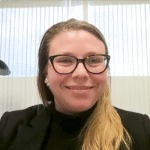
Creating office destinations outside city centers with Faron Brazis | Tenant Engagement Manager | Hobbs Brook Real Estate
Season 6 / Episode 13 / 32:42
In this episode, Faron discusses how suburban office environments are adapting to meet changing tenant expectations, the growing role of hospitality in commercial real estate, and why human connection remains essential even as technology becomes more embedded in buildings.

TEN Season 6 Highlights
On season 6 of the TEN podcast, host David Abrams connected with some exceptional leaders in commercial real estate who are at the forefront of innovation, technology, and delivering a hospitality-inspired customer experience to the workplace. Have a listen to some of our favorite clips.

Creating value & enhancing tenant experience with Jonathan Bennett | President | AmTrustRE
Season 6 / Episode 12 / 49:09
In this episode, Jonathan shares how he is helping redefine what success looks like in today’s office market, the importance of differentiating buildings through thoughtful design and curated amenities, and how technology and AI are creating new opportunities to enhance the tenant experience.
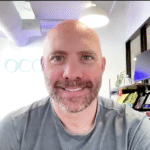
From CRE broker to PropTech founder with Matt Giffune | Co-founder | Occupier
Season 6 / Episode 10 / 42:18
In this episode, Matt discusses the value of industry experience in building PropTech, the evolution of office work in a hybrid era, and why quality and flexibility are now critical to attracting and retaining talent. Matt also shares his perspective on how technology can enhance tenant experience, and the growing potential of AI in the industry.
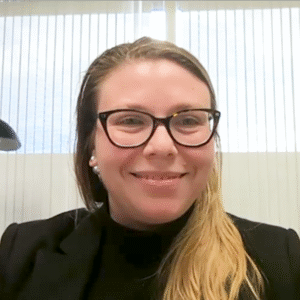
Creating office destinations outside city centers with Faron Brazis | Tenant Engagement Manager | Hobbs Brook Real Estate
Season 6 / Episode 13 / 32:42
In this episode, Faron discusses how suburban office environments are adapting to meet changing tenant expectations, the growing role of hospitality in commercial real estate, and why human connection remains essential even as technology becomes more embedded in buildings.
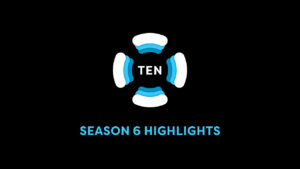
TEN Season 6 Highlights
On season 6 of the TEN podcast, host David Abrams connected with some exceptional leaders in commercial real estate who are at the forefront of innovation, technology, and delivering a hospitality-inspired customer experience to the workplace. Have a listen to some of our favorite clips.
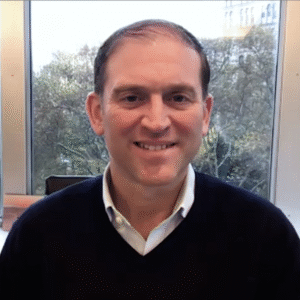
Creating value & enhancing tenant experience with Jonathan Bennett | President | AmTrustRE
Season 6 / Episode 12 / 49:09
In this episode, Jonathan shares how he is helping redefine what success looks like in today’s office market, the importance of differentiating buildings through thoughtful design and curated amenities, and how technology and AI are creating new opportunities to enhance the tenant experience.
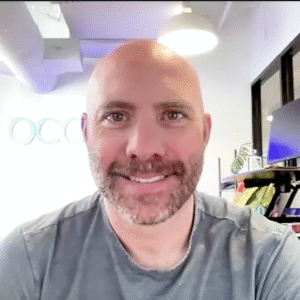
From CRE broker to PropTech founder with Matt Giffune | Co-founder | Occupier
Season 6 / Episode 10 / 42:18
In this episode, Matt discusses the value of industry experience in building PropTech, the evolution of office work in a hybrid era, and why quality and flexibility are now critical to attracting and retaining talent. Matt also shares his perspective on how technology can enhance tenant experience, and the growing potential of AI in the industry.